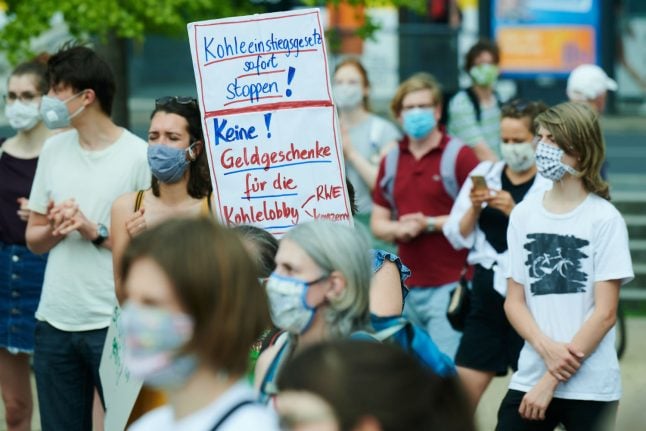However, car parades and bicycle demonstrations will be exempt from the new rules.
Previously, participants of demonstrations were not required to wear a mask, according to the rules of the ‘Infection Protection Ordinance’.
The mask requirement already applies on public transport, as well as in shops and supermarkets. Since the beginning of the school year, pupils must also use the mouth and nose coverings in buildings, but not directly in the classroom.
The Senate discussed the issue on Tuesday following several demonstrations in Berlin against the government’s coronavirus policy at the weekend.
The authorities estimate that a total of around 38,000 people took part in the protests against the coronavirus measures in Berlin on Saturday.
The Berlin authorities previously sought to ban the gatherings, but they were defeated in court.
READ ALSO: Berlin allows anti-coronavirus measures demo to go ahead
Police then broke up the gatherings, stating that tens of thousands of people – often without masks or social distance – posed too high a health risk to the general population.
Another demonstration also occurred on August 1st, in which most demonstrators deliberately ignored hygiene rules.
Berlin's Senator of the Interior Andreas Geisel (SPD) had announced on Monday that he was in favour of compulsory masks for demonstrations.



 Please whitelist us to continue reading.
Please whitelist us to continue reading.
Member comments